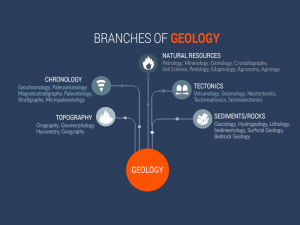Average Salary in Environmental Science

Average Salary in Environmental Science
What is the average salary in environmental science? It depends on which type of career you’re looking for. Today, we’re going to summarize the environmental payscale in 3 classes:
- Low range (45,000-65,000$)
- Mid-range (65,000-75,000$)
- High range (75,000$+)
Find out which pay scale group your career is in.
Low Range Environmental Science Salary Careers (45,000-65,000$)

At the bottom of the salary pyramid, the low range of environmental science careers brings a range of options.
These positions usually require certification or a college diploma. Low range environmental science salary positions are within the range of 45,000-65,000$.
These types of hands-on positions often do the heavy-lifting for fieldwork or grunt work in the office.
1. Arborists
Arborists or tree surgeons specialize in individual trees, shrubs, vines, and other perennial woody plants. They understand how to cultivate and how they respond to cultural practices. They make an average salary of about 48,970$ with an average growth trend.
2. Marine Biologists
Marine biologists specialize in how life in the oceans behaves in their natural habitats. They often work at sea collecting biological samples and recording fish distributions. The average salary is 53,900$.
3. Oceanographers
Oceanographers understand how the physical and biological properties of oceans interact. This may include anything from marine ecosystems, ocean currents, and fluid dynamics. Their average salary is about 59,500$.
4. Soil Scientists

Soil scientists is a professional who studies the physical, chemical, and biological properties of soils. The aim is to understand their composition, quality, and how they can be managed for various purposes, including agriculture, environmental conservation, and land use planning.
This includes soil formation factors, classification, physical, chemical, and fertility properties. Its job growth rate is steady with an average salary of about 62,910$.
5. Agronomists
Agronomists focus on crop production and applying new technologies. Agronomists study plant science to improve efficiency in crop production. Their average annual salary is approximately 62,910$.
6. Anthropologists
Anthropologists study how humans and societies behave in the past, present, and future. By conducting archaeological and excavation surveys, they better understand Earth’s cultural resources. With greater knowledge of the past, we can improve historic preservation. Their average salary is $62,300 and job growth is slower than average.
7. Foresters
Foresters specialize in the way we manage, plant, conserve, and harvest forests. The key focus is on tree identification, timber harvesting, and silviculture. On average, foresters make about 60,970$ annual salary with a steady outlook.
8. Paleontologists

Paleontologists understand how organisms evolve and their interactions in their environment. They also investigate the origin of species by tracing life back to their fossil records.
Their average salary is about $61,300 with steady job growth. Paleontologists often work in academic or museum settings, conducting research, curating fossil collections, and educating the public about Earth’s ancient history.
9. Seismologists
Seismologists interpret how seismic waves travel through and around the Earth from earthquakes. In addition, they understand plate tectonics and identify rupture mechanisms and fault structures. The average salary is approximately 63,400$.
10. Volcanologists
Volcanologists study how and where volcanoes and related phenomena (lava, magma) erupt and form (past and present). They may work with seismic data and plate tectonics. The average salary is approximately 64,700$.
Mid-Range Environmental Science Salary Careers (65,000-70,000$)

As we move higher in the salary range, we see more specialized skilled professions. For example, hydrologists and biologists require a minimum 3-year university degree.
In the mid-range salary, these environmental science positions earn anywhere in the range of 65,000 to 70,000$.
But don’t let the pay scale fool you though. But senior positions in these branches of earth science achieve higher salaries.
1. Biologists
Biologists earn on average about 65,000$. Biologists work with wildlife, marine life, and vegetation. They analyze how living things, flora and fauna are composed including their structure and composition.
2. Hydrologists
Hydrologists analyze how water travels in relation to land and how it impacts people. This may include water availability and risks like drought and flood protection. Hydrologists often work in the field. For a hydrologist career, your average salary is about $65,100 with faster than average job growth.
3. Geographers
Geographers pay special attention to “where” to locate on Earth. By using GIS software, they store physical and built features in the world all in a database. From here, they can analyze and display Earth’s features on a map. Their average salary is about $65,400 and is experiencing average job growth.
4. Geologists

Geologists study bedrock and surface rocks. More specifically, they best understand how Earth’s landforms and rock change over time.
Overall, their salaries average 66,800$, and are seeing significant job growth. These professionals play a crucial role in understanding the Earth’s processes, assisting in resource exploration, and mitigating geological hazards.
5. Zoologists
Zoologists study the evolution, classification, and distribution of animals in an environment. As humans disturb habitats, animals are at risk of being extinct now more than ever. Their average salary is about $65,900 with steady job growth.
6. Environmental Scientists
Environmental scientists understand how the natural world interacts with its surroundings. Often, they consult on how construction projects will impact the natural environment. Overall, their salaries average 69,400$ and are seeing significant job growth.
7. Toxicologists
Toxicologists and epidemiologists understand how poisonous substances affect living organisms. They assist in reducing people’s exposure to chemicals that pose risks to our health. Their average salary is about 69,700$ with steady job growth.
Mid-to-High Range Environmental Science Salary Careers (70,000-75,000$)

As we move higher in the pay range, these environmental science careers require an even higher level of education or work experience.
For example, ecologists are different from biologists in that they are (in general) hired professionals typically requiring several years of experience. On the other hand, biologists, environmental scientists, and staff scientists are entry-level positions.
The positions below are median salaries and pay can be significantly higher or lower than listed.
1. Limnologists
Limnologists investigate the biological, chemical, and physical properties of lakes and ponds. By collecting water quality samples, they relate these readings to terrestrial surroundings. On average, limnologists earn $71,800 and often work in the private sector and government.
2. Botanists

Botanists specialize in how to classify plants and how they grow. For example, they perform various types of studies on plant growth and weed control.
Botanists average about 71,900$ in annual salary and job growth is at a steady rate. They are essential in studying and preserving plant life, contributing to our understanding of ecosystems and the environment.
3. Ecologists
Ecologists understand how organisms relate to each other in their physical environment. For example, they assess population dynamics in a built or natural environment. They average about 72,600$ in annual salary.
4. Geophysicists
Geophysicists study the physical processes that relate to Earth and its surrounding space. They work in seismic, marine, and gravity investigations. For example, they may investigate subsurface material detection. The average salary is 73,300$.
5. Geomorphologists
Geomorphologists assess the creation and evolution of landforms on Earth. For example, they specialize in physical features and geological structures. Before construction, they often consult engineers to better understand the landscape. Geomorphologists are often categorized in the group of geoscientists who on average earn about $73,800.
6. Hydrogeologists
Hydrogeologists or groundwater specialists specialize in how soil and rock relate to groundwater. For example, this includes the distribution and transportation of water to the surface. Their average salary is about $74,100 and job growth is faster than average.
7. Climatologists
Climatologists examine the variation of weather patterns in the past, present, and future. By understanding long-term weather, we can learn how climate change will affect the future. On average, they earn $74,500 with job growth faster than normal.
High Range Environmental Science Salary Careers ($75,000+)

Education and experience are the main reasons why these positions constantly rank at the top of the environmental science pay scale.
In addition, these positions often fall into lucrative industries. For example, petrologists work in the oil and gas sector and sedimentologists work in resource extraction and exploration.
At the top of the salary pyramid, we found that astronomers are the highest-paying earth science position.
1. Geochemists
Geochemists characterize minerals and elements from environmental samples taken in the field. From samples, they can understand the age and composition of rocks, minerals, and soils at a molecular level. Their annual pay scale is about $76,300 with an average job growth outlook.
2. Petrologists
Petrologists investigate how igneous, metamorphic, and sedimentary rocks form specific to oil and natural gas. They are knowledgeable in rock formations and the geologic era they may have formed. The average salary for petrologists is about $78,500.
3. Meteorologists

Meteorologists and atmospheric scientists partake in weather prediction and issue warnings for severe weather. They understand atmospheric chemistry and physics and how they relate to weather and climate patterns.
Salary growth is higher than average with the median salary at about $79,400. Competition for meteorologist careers is extremely tight in the current job market.
4. Sedimentologists
Sedimentologists and stratigraphers inspect how strata and rocks are layered through geologic time. In addition, they focus on resource extraction and exploration. Their pay scale is at about 84,700$ on average.
5. Geotechnical Engineers
Geotechnical engineers understand the behavior of earth materials. For example, they interpret rock and soil samples to investigate subsurface conditions. For example, geotechnical engineers often earn upwards of 84,000$ depending on education and experience.
6. Astronomers
Astronomers have their eyes set on the stars and solar system. They study how planet Earth relates to our universe and solar system in space and time. Growth is faster than average with a median salary of $101,200. However, astronomers often require a Ph.D. as competition is tight.
Changelog
- This article was last updated in 2024














